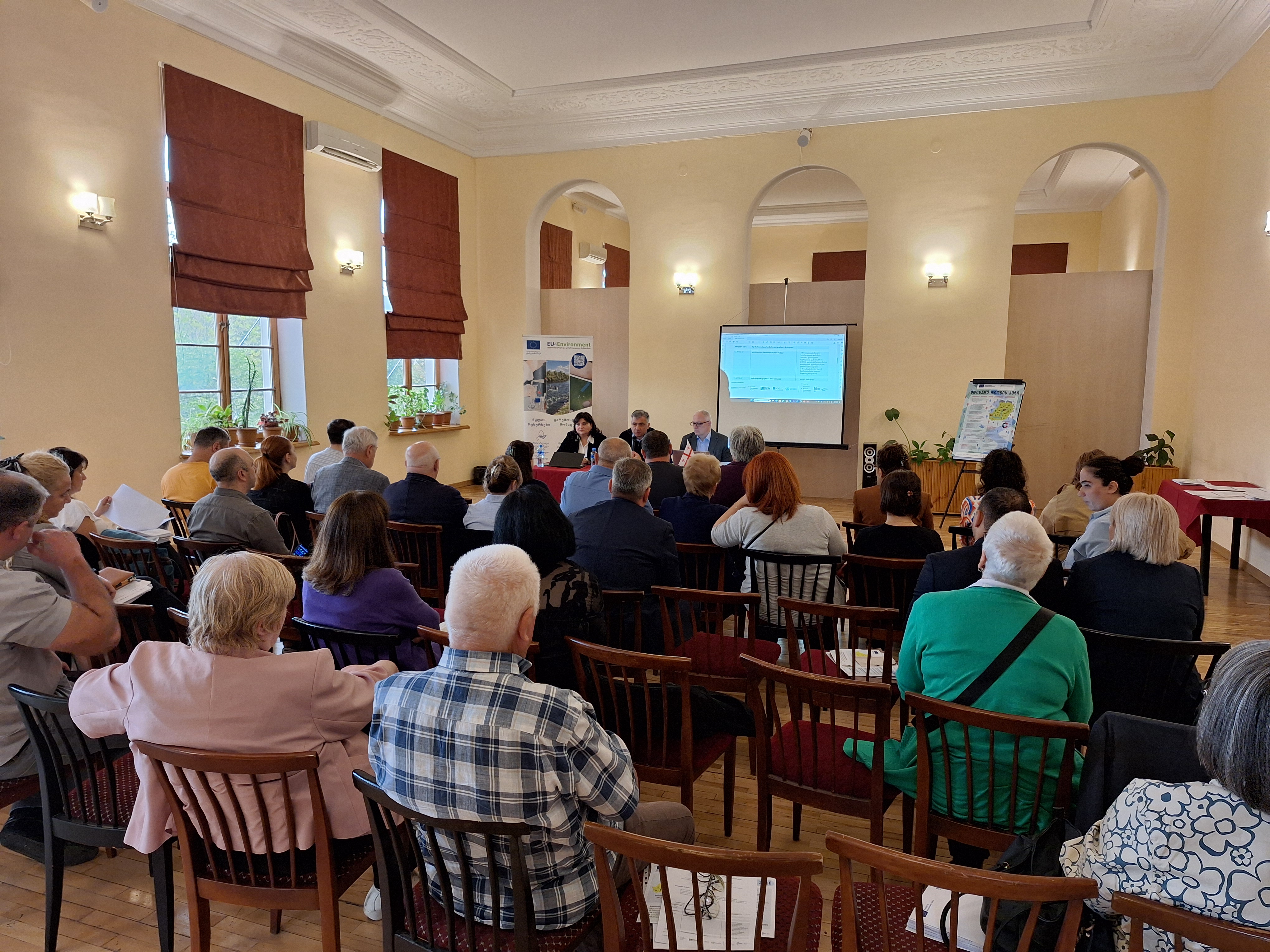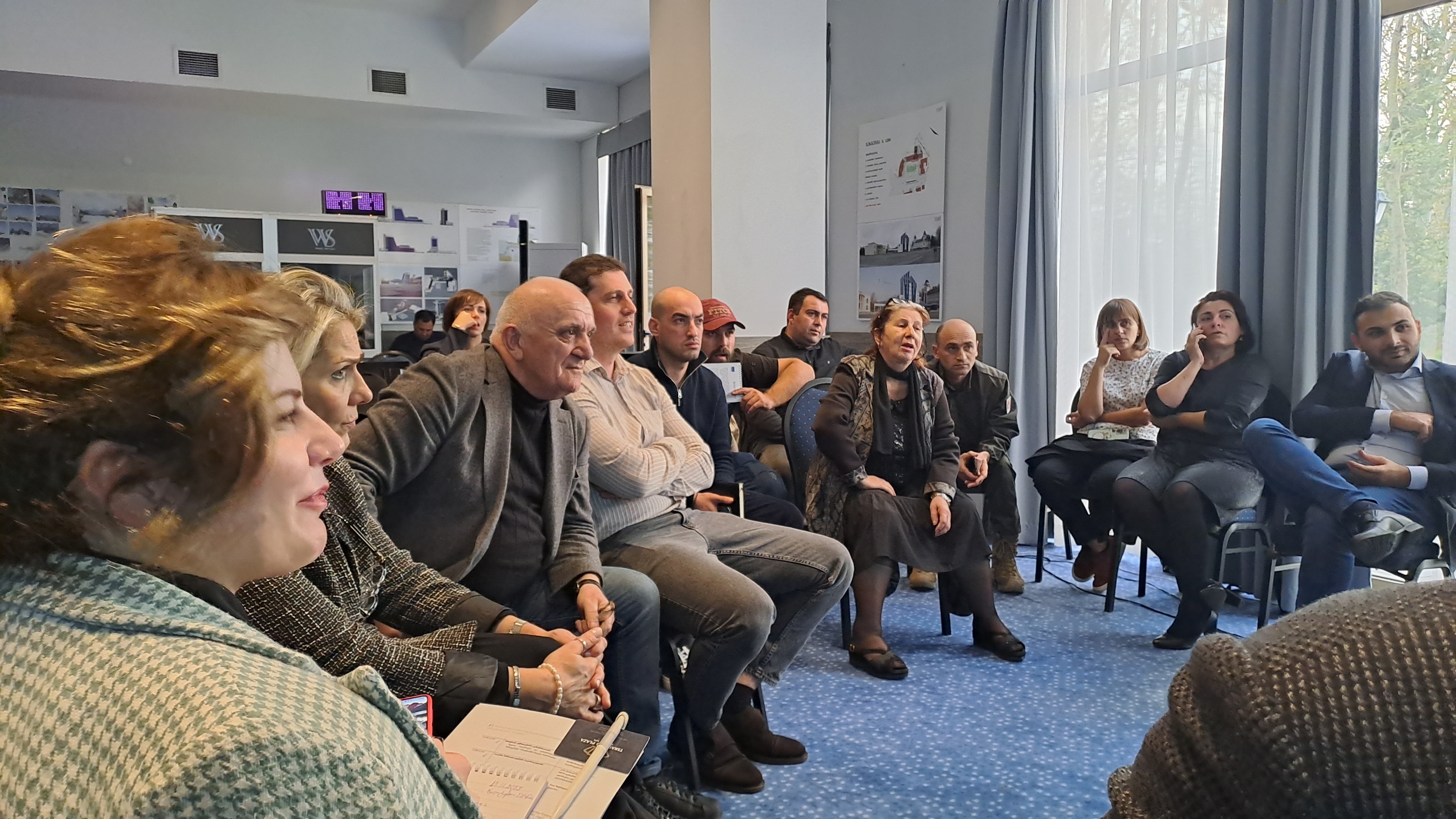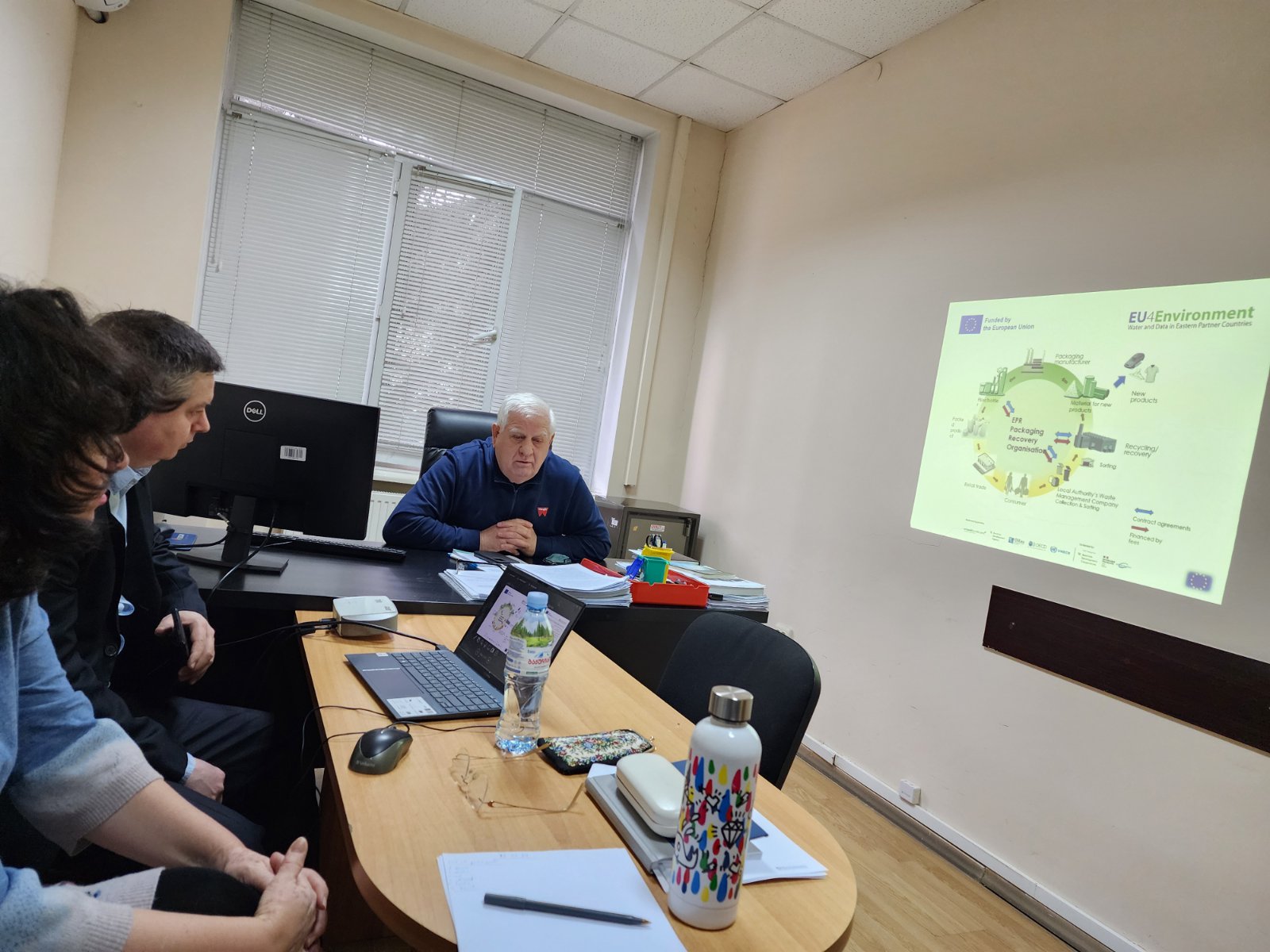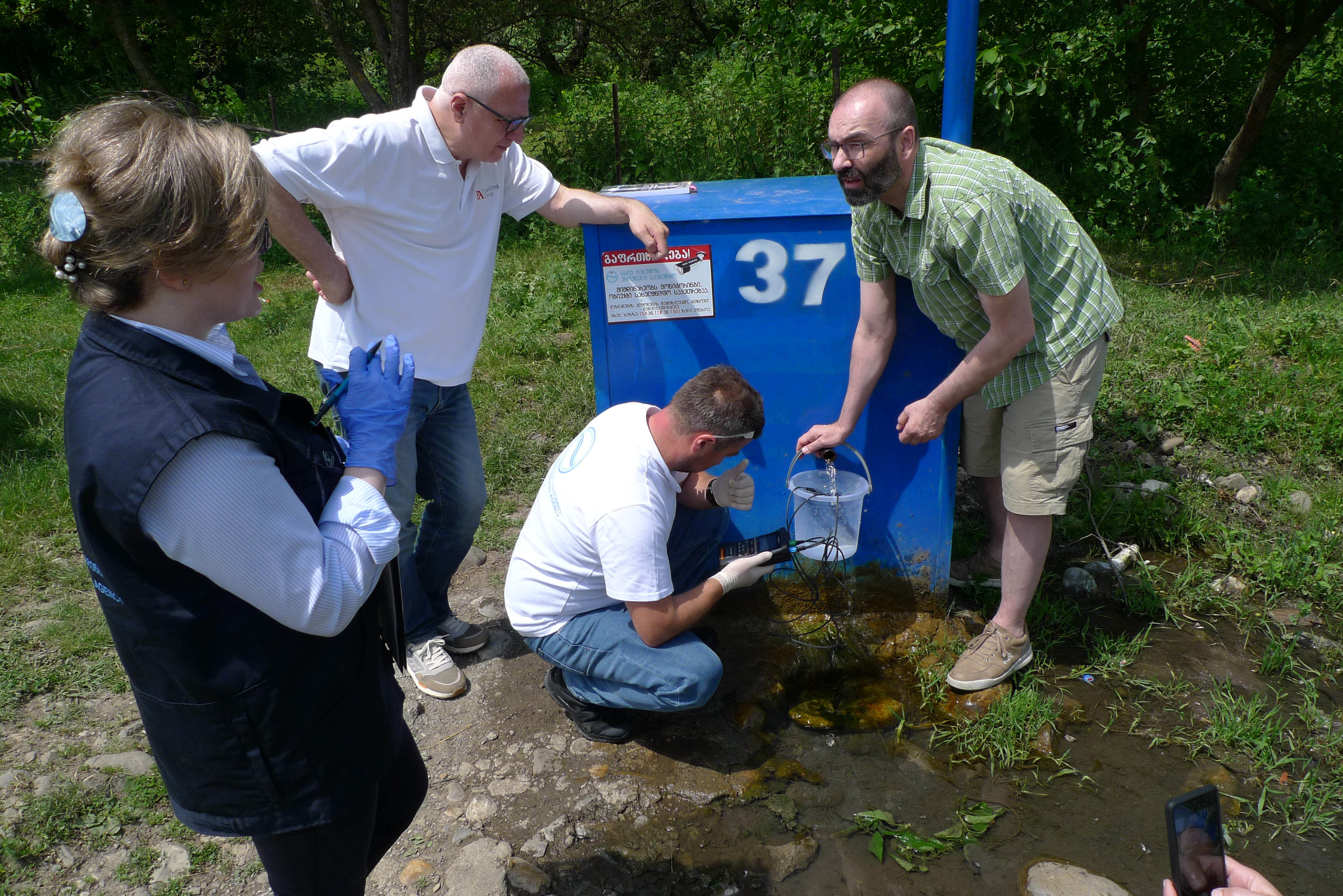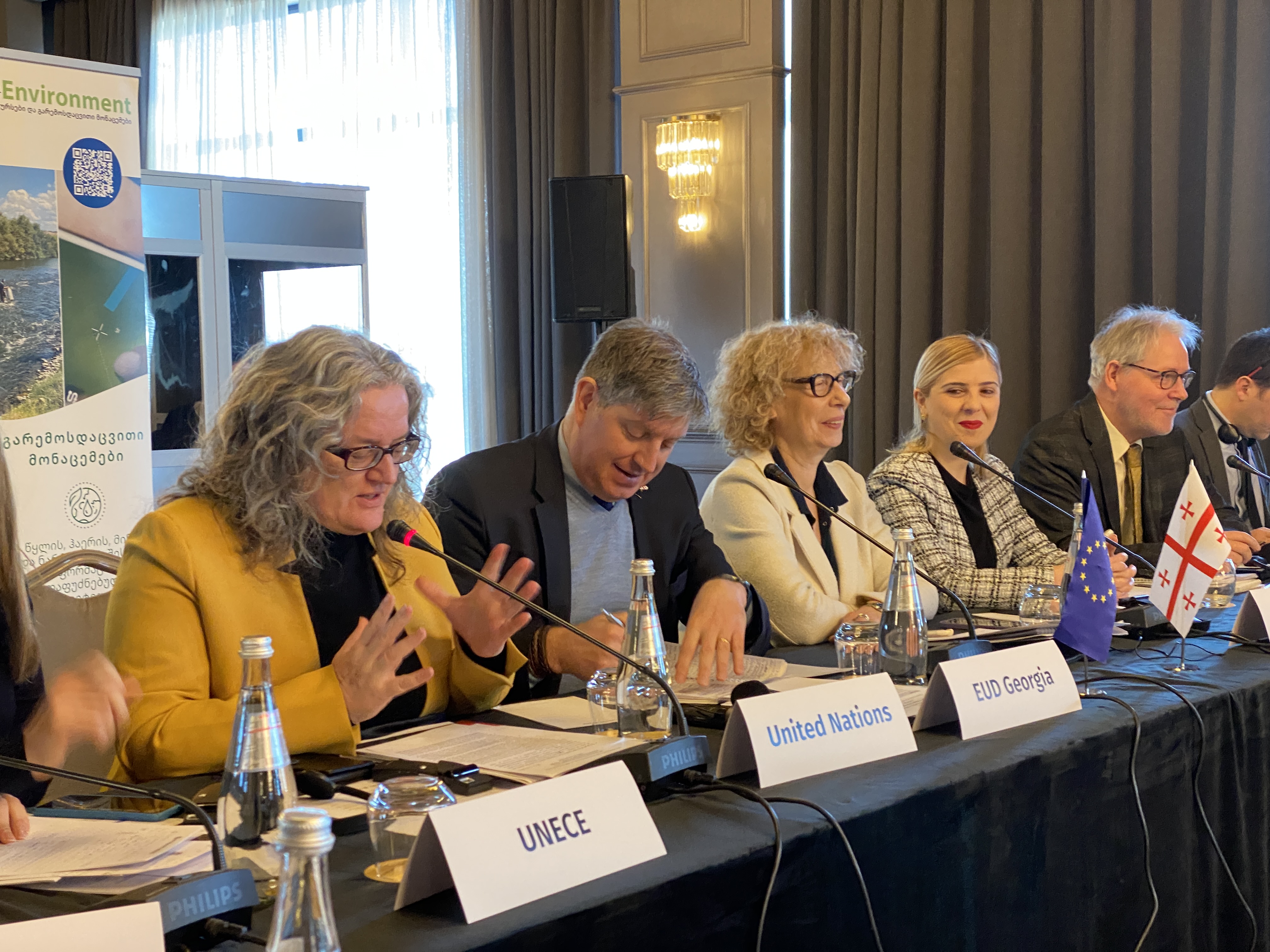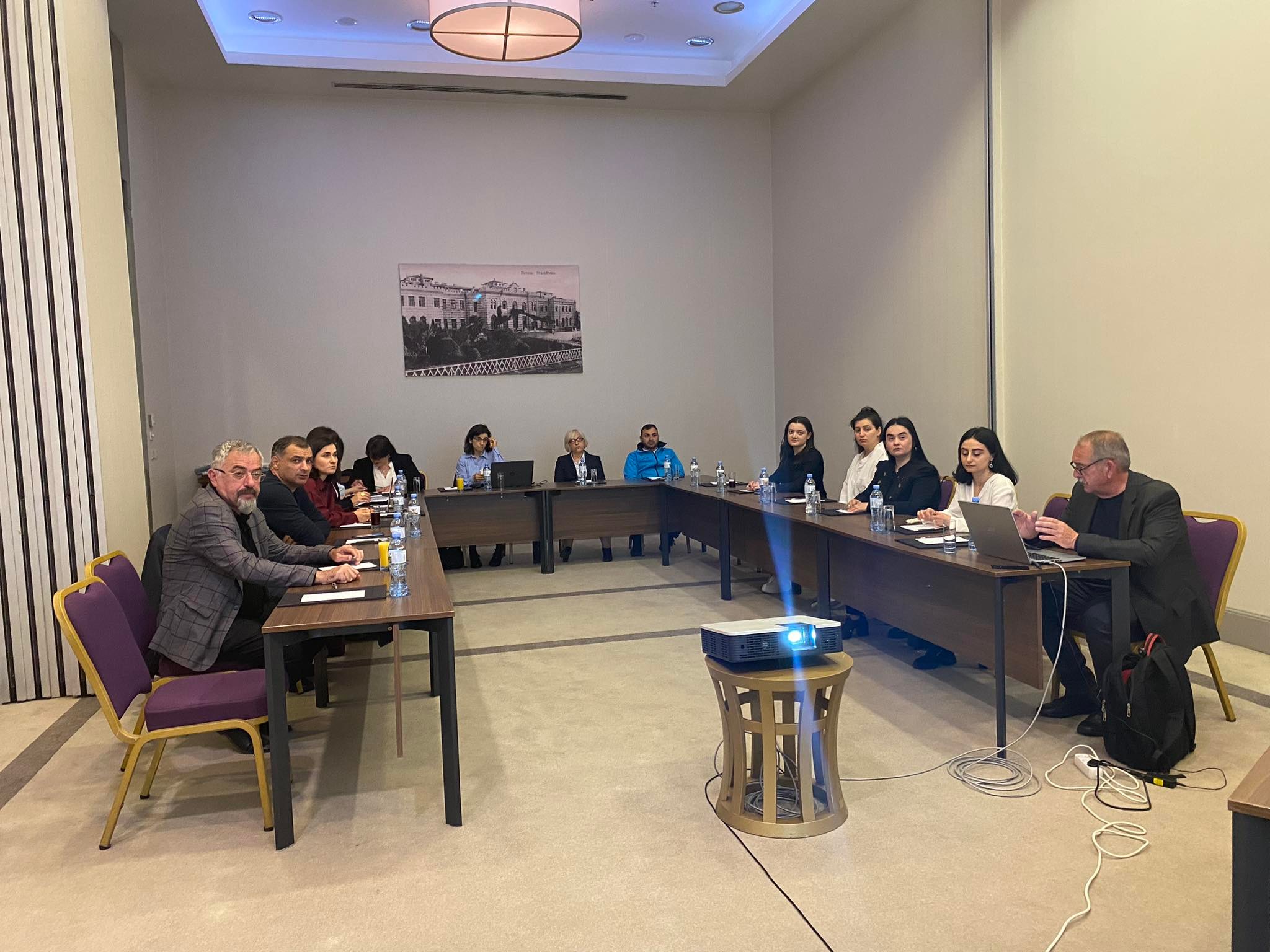- Country: Georgia
- Component: Water resources
Georgia held its second public consultation meetings on the Enguri and Rioni River Basin Management Plans on 1 and 3 October 2024. Supported by the EU4Environment Water and Data programme, the plans align with EU Water Framework Directive principles and aim to enhance sustainable water management in Georgia.
Rioni River Basin Consultation - 1 October 2024
The first consultation meeting, held on 1 October in Tskaltubo, focused on the Rioni River Basin, which spans 15,820 km². The meeting brought together key stakeholders, including national and local authorities, NGOs, and representatives from academia. Discussions centered on presenting final results of the Rioni RBMP and reviewing the draft PoMs. The participants aimed to agree on the key PoMs and prioritise their implementation to address pressing water management issues in the basin.
Enguri River Basin Consultation - 3 October 2024
On 3 October, a similar consultation was held in Kobuleti for the Enguri River Basin, covering 6,610 km². Stakeholders gathered to review the draft RBMP and PoMs, which focus on ensuring sustainable water resource management in the basin. The meeting also provided a platform for discussions on the ways to implement these measures, with particular focus on ensuring that all parties—national and local authorities, NGOs, and the scientific community—are aligned in their efforts.
Aligning with EU Standards
The EU4Environment programme has been instrumental in supporting Georgian water experts in the preparation of these RBMPs. Both plans have been developed in line with the principles of the EU Water Framework Directive (WFD), which aims to achieve good status for all water bodies across Europe. The RBMPs serve as Georgia’s key tools for managing water resources at the basin level, guiding pollution control, and sustainable water usage for the next six years.
The consultation process, which included earlier plenary meetings in 2023 to present the initial characterisation of the river basins, is an essential part of finalising these plans. By involving stakeholders at every stage, the process ensures that the RBMPs reflect the needs and priorities for the Enguri and Rioni basins, setting the stage for more effective water resource management in Georgia in the coming years.
Read the reports from the 2023 consultation meetings


